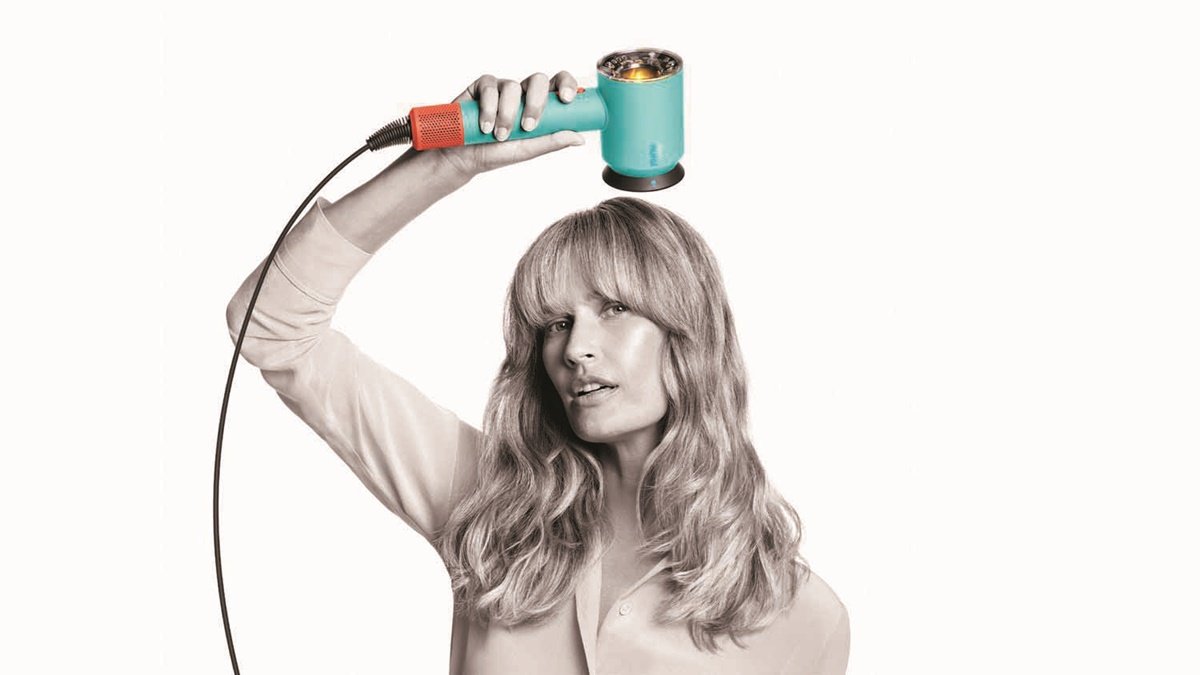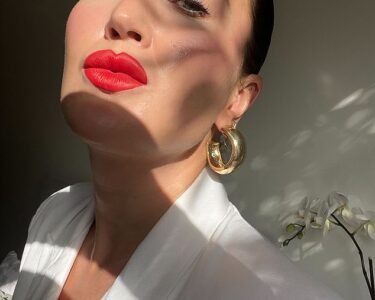Just picture this. You collect a sample from your cheeks using a facial tape strip. After dissolving the special sticker in a buffer solution, the resulting liquid is then placed into a cartridge, which is further inserted into a tabletop device. While the device processes the sample, you can answer a short questionnaire and have your face imaged using an accompanying device.
In a few minutes, you get your report. The device not only calculates your skin’s age but also gives personalised advice on how to slow down the appearance of ageing, minimise guesswork and predict responsiveness to certain key ingredients such as retinol.
Cool, isn’t it? Now imagine another situation. You’re in front of a mirror—using AI, it not only detects your emotional reactions to various makeup looks, but also guides you toward the shades and styles that spark joy.
Welcome to the world of technological innovations, where tools and devices are revolutionising the way we look at skincare and make-up experiences and changing the face of the beauty and cosmetics industry.
Unveiling the future
Earlier this year, at the Consumer Electronics Show (CES) 2025, French multinational personal care giant L’Oréal showcased its Cell BioPrint, a tabletop hardware device that offers personalised skin analysis in just five minutes. Developed in collaboration with Korean startup NanoEnTek, the device leverages advanced proteomics, which is the study of proteins and their impact on skin ageing, to shift skincare from a reactive to a proactive approach. “At L’Oréal, we’re looking toward the future of beauty, blending cutting-edge discoveries with our long-standing beauty expertise. With skin being the largest organ, and a key part of people’s wellbeing, the Cell BioPrint is an exclusive microfluidic lab-on-a-chip technology coupled with our century-long skin science leadership,” says Barbara Lavernos, deputy CEO in charge of research, innovation and technology at L’Oréal Groupe.
The device is set to pilot with a L’Oréal brand in Asia later this year.
The L’Oréal Groupe also showcased Mood Mirror, a first-of-its-kind augmented reality experience that helps beauty lovers discover and interact with makeup via their emotions, and My Aura, an accessible fragrance assistant that sprays perfume without the need for button-pressing, making it ideal for individuals with visual or limb disabilities.
Meanwhile, Samsung debuted its Micro LED Beauty Mirror developed in partnership with Korean cosmetics company Amorepacific at the CES 2025. The 21-inch smart mirror display combines personalised beauty insights where the mirror doubles as a personal assistant, displaying schedules, weather updates, and customised makeup suggestions.
At CES, Japanese multinational cosmetic company Shiseido also unveiled its Skin Visualiser, a device that instantly measures and visualises the current skin condition, aiming to provide beauty advice tailored to each individual.
Virtually yours
The surge in demand for personalised skincare and tech-enabled beauty solutions has led brands like Amazon Beauty to introduce a virtual try-on experience for precision in choosing products. “We launched Global Beauty Store and Derma Store to offer a wide range of local and international brands. Our AI-powered tools like Skincare Analyser are helping customers discover products tailored to their needs, empowering them to explore and express their personal beauty preferences with the convenience of fast delivery,” says Siddharth Bhagat, director, Amazon Fashion and Beauty India.
Brands are now leveraging AI and machine learning to improve product recommendations and virtual try-ons.
SkinCare Advisor by Amazon is another innovative tool that lets users take a short survey about skin type and goals and discover products suited to unique skincare needs through intuitive guided experience. It also offers language customisation in Hindi, Tamil, Telugu, Kannada, and Marathi for personalised shopping.
“With AI integration rapidly transforming industries, virtual try-ons will soon become a non-negotiable feature for brands and an essential part of the shopping experience,” says Vidushi Goyal, chief marketing officer of makeup brand Swiss Beauty, which has plans to introduce an omnichannel virtual try-on feature on the brand website and exclusive brand outlets to assess best shades on skin without having to physically try multiple products, and works while wearing glasses or makeup.
Meanwhile, multinational tech giant Dyson is planning its first-ever wet line styling products, the Dyson chitosan formulations range, a complex macromolecule derived from oyster mushrooms and engineered with Dyson triodetic technology. The range is designed to combat the problems like the use of simple polymers to lock hair strands together with stiff bonds. The new range of formulations is introduced in select markets and will be available in India soon.
“Some styling products use simple polymers to stick the strands of hair together like glue. Dyson’s formulas work differently. The complex macromolecule helps create flexible bonds, supporting hair strand by strand, for 2x the hold, with movement and shine,” says James Dyson, founder and chief engineer, Dyson.
“We want to take the guesswork out of styling. Overuse can weigh hair down and cause styles to lose shape prematurely because our formula is highly concentrated. This system reduces the chance of error, allowing you to adjust the quantity until you find the right balance, ensuring consistent styling results,” says Amy Johnson, head of education at Dyson.
Hi-tech skincare
Meanwhile, some companies like the US-based SmartSKN Labs are leading the charge in AI-driven personalisation, transforming how we approach skincare with technology. The skincare clinic has partnered with LillyCover, a pioneer in Korean skincare technology, to introduce AI-driven skincare robots to the US market, combining the best of K-beauty with cutting-edge AI skincare personalisation.
For instance, SmartSKN’s Muilli AI Dermascope lets you analyse your skin at home through a 60x magnification camera to capture images across five key areas of the face – cheeks, forehead, eye area, nose, and chin. It also includes a microcurrent moisture sensor, which is placed on both cheeks to measure moisture and oil levels.
Similarly, global product design and technology company SharkNinja recently launched the CryoGlow Mask, a high-tech LED facial device. Launched in the UK in 2024, and now available in the US, the mask offers red and blue light therapy along with medical-grade stainless steel cooling for under-eye treatments. Designed to mimic a medispa experience, the CryoGlow Mask includes four customisable treatments, each lasting five to 15 minutes. In a 12-week study of 60 participants, users reported reduced fine lines, redness, acne, firmer skin, and a more even complexion.
Inclusive beauty
Thanks to technology, several brands are now coming out with adaptive makeup and application tools with easy-to-use products that anyone, regardless of any physical ability, can use. Lancome’s Hapta, for instance, is a handheld motorised makeup device applicator for people with limited arm mobility, hand-motion disorders, arthritis or Huntington’s Disease. The Estée Lauder Companies (ELC) UK & Ireland, a prominent player in the UK prestige beauty market, has introduced a voice-enabled makeup assistant application to help visually impaired users more easily and confidently apply makeup. Another UK-based beauty brand Kohl Kreatives has accessible products for people who have trouble with fine motor skills.
Back home, The Body Shop started a Braille initiative last year in select stores across India —Mumbai, New Delhi, Gurugram and Bengaluru. Homegrown beauty brand Ibaeuty has disability-friendly packaging with easy-to-open designs that require minimal strength or dexterity, flip-top lids, pumps, or magnetic closures instead of twist caps.





